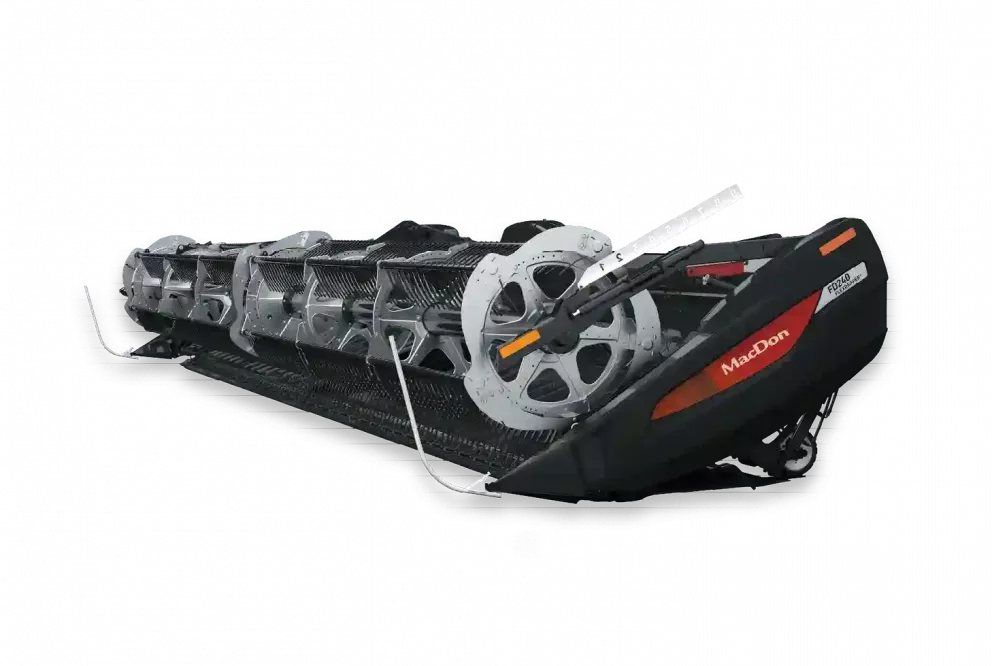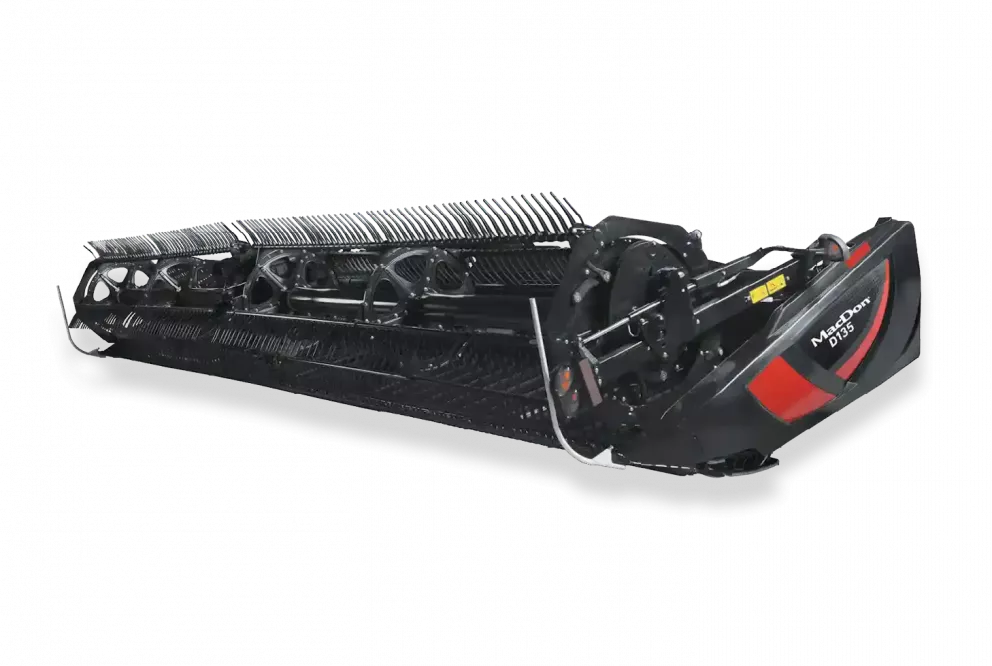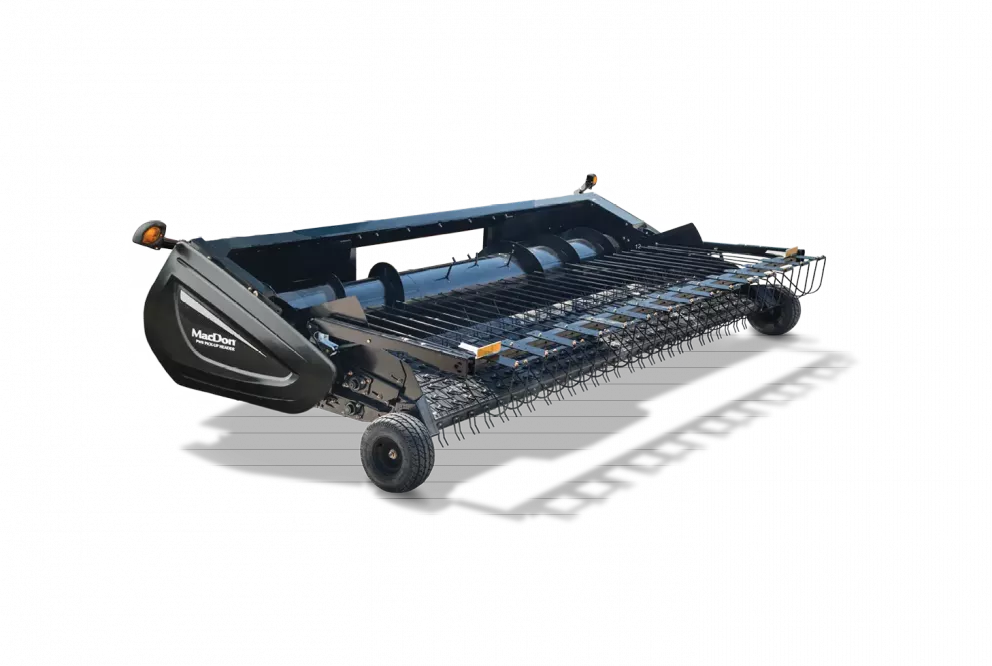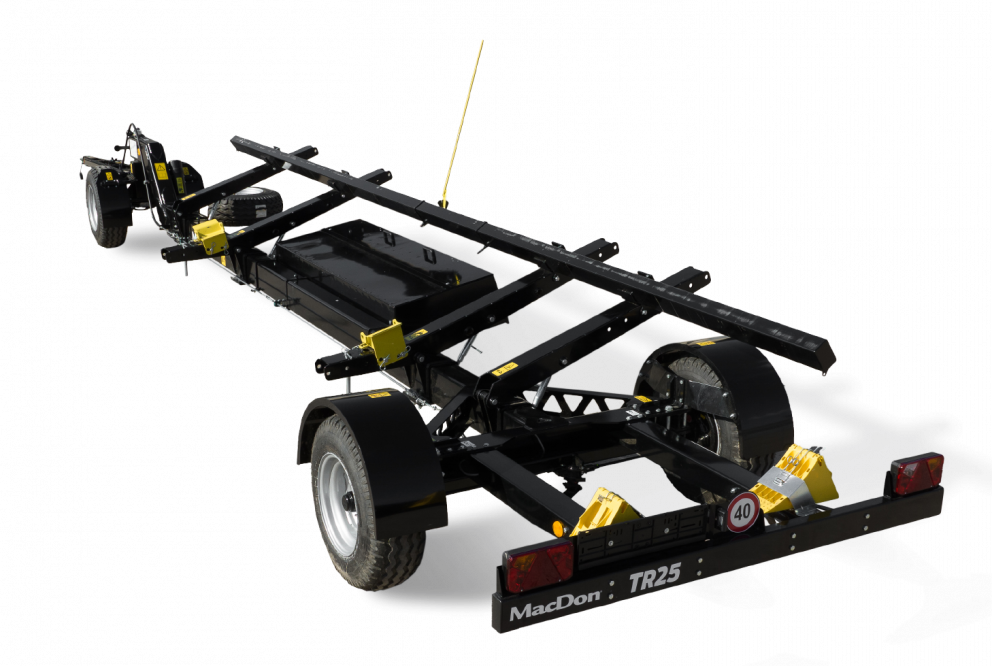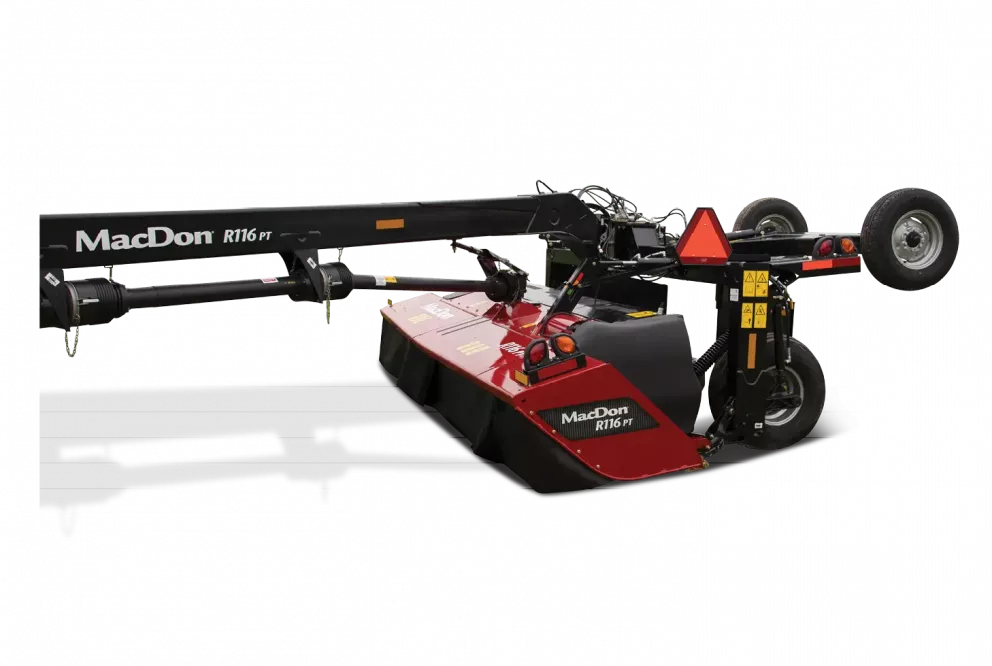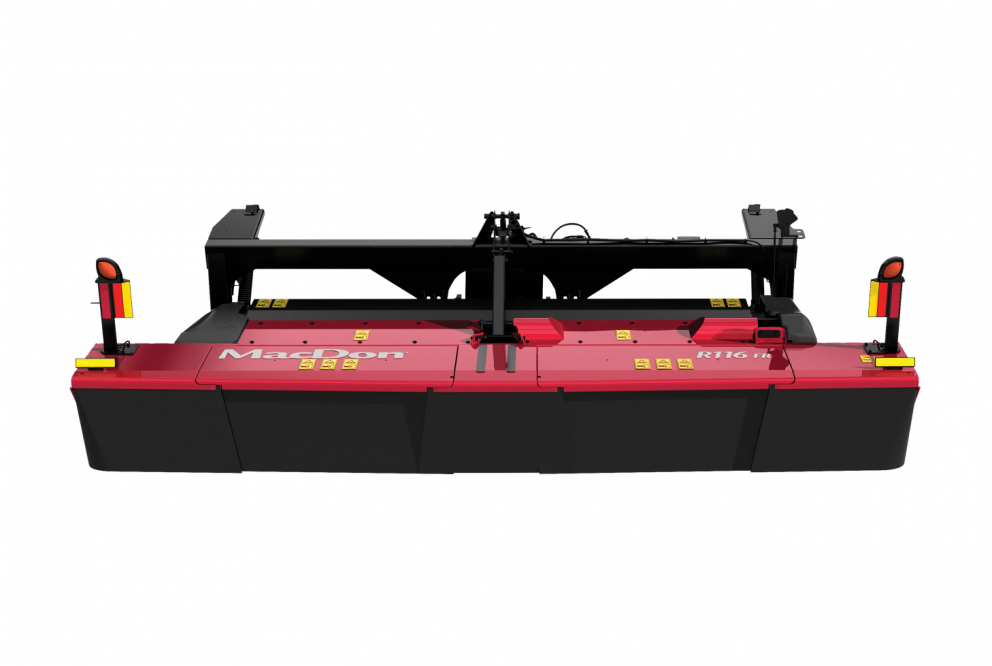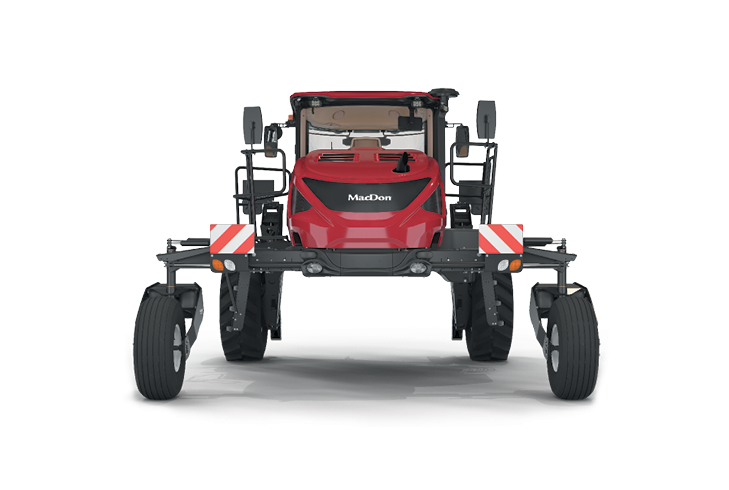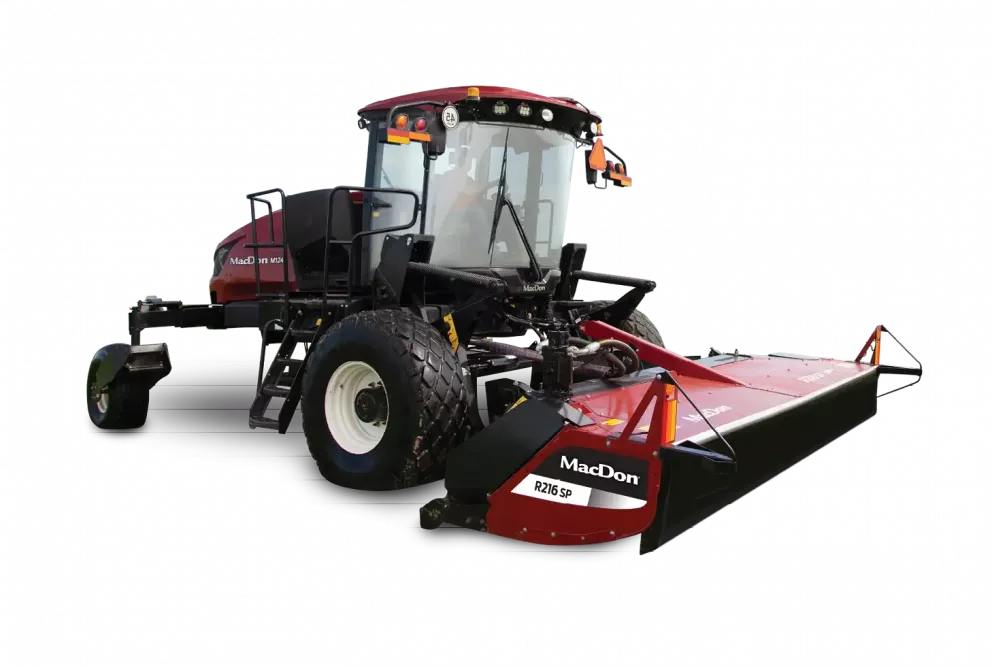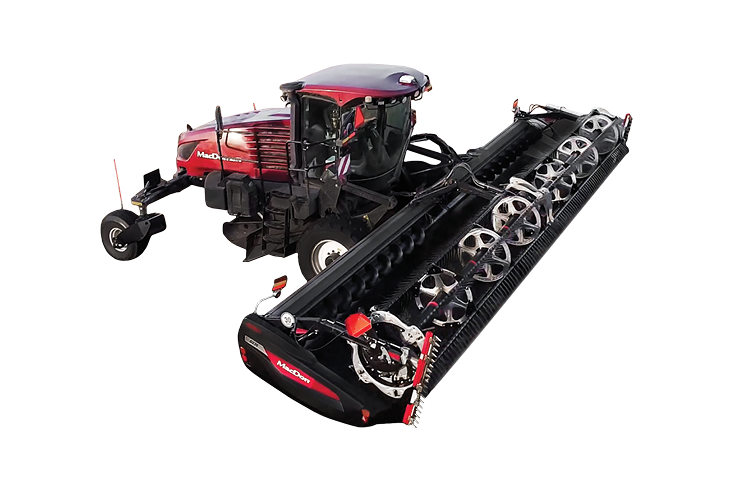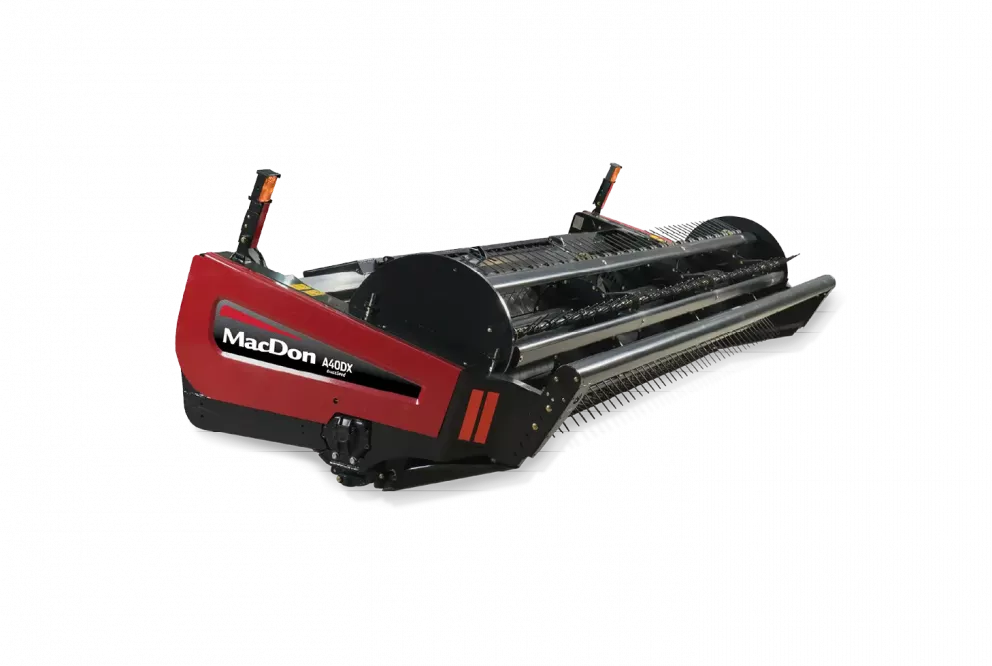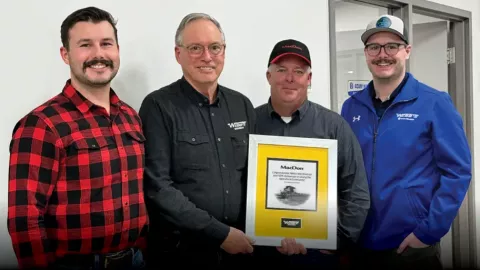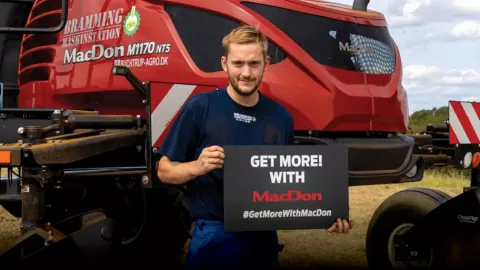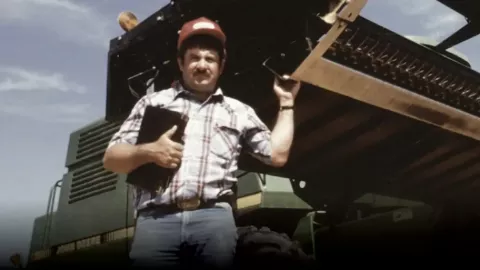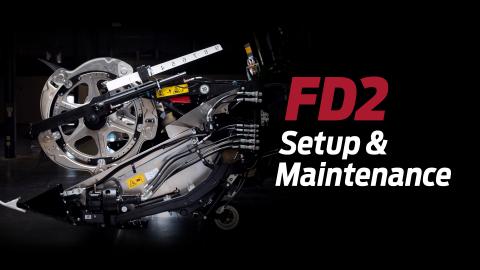Let’s Be Frank
When all else failed, custom harvester Frank Scholz turned to the MacDon D1 Draper; now his clients won’t settle for anything less.
The grain harvest of 2017 near Frankfurt, Germany, was shaping up to be a disaster. Thanks to an exceptionally wet summer, soil conditions were not conducive to combine harvesting and few fields had been left standing
"At the time many of my customers were telling me that the harvest was over," recalled custom harvester Frank Scholz, who cuts crops for about a dozen farmers near the town of Linsengericht, about 20 kilometers(12 miles) east of Frankfurt.
"Only about 30 hectares (74 acres) of winter barley in the area were still standing; almost everything else was down. My customers wanted me to mulch the crop because they thought that there was zero chance of recovering it."
Scholz had tried picking up the downed crop with his previous header and combine, but had no success.
"Because of the wet conditions the combine was going very deep into the soil. We just couldn't achieve the correct angle for the header to cut properly.
In desperation, Scholz reached out to his dealer to see if he could get a MacDon D1 Draper header for his combine. He had seen the MacDon D1 Draper at farm shows, and even on YouTube, and he thought that one of them might be just the thing to improve the situation.
"I'd been interested in MacDon headers for five or six years after seeing them at shows in Europe and North America. This seemed the perfect time to try one. Unfortunately, my dealer told me that we wouldn't be able to get one until September or October, which was too late for us. Then, he called back three days later to say that he had found a header configured for a Case combine in Austria. Thankfully, the dealer had the conversion parts for a John Deere combine so we ordered it.
With its patented active float system and c-shaped cutterbar, the D1 worked even better than Scholz says he could have hoped.
"We were able to cut all of their fields with almost no grain left behind." It made no difference if the crop was lying or standing, the header worked the same. We saved the crop. That was very enjoyable for me."
Since that harvest, Scholz says that his customers are pressuring him to cut exclusively with MacDon.
"Now my customers are telling me that in the future you must get a second D1 for your other combine. They insist that I come with the MacDon because the cutting quality is that much better than the headers we were using before."
Scholz's customers are not the only ones who have taken interest in his use of the D1. Since 2017 farmers from across the country have called on Scholz to see the header in person.
"Many, many German farmers and contractors have come to visit me to see my D1 header. In the last three weeks alone, six farmers have come by. They all want to know how it works and I say perfect, just perfect it is the best machine for my contract operation."
Scholz says that he began contract harvesting back in 1985 at the age of 20.
"I started my contract operation with nothing, zero. My family did not farm, but my parents gave me 50,000 deutschmarks with which I purchased one combine harvester and one chopper. At the time I was the only contractor in this area without land, so I did a lot of things to make a business for myself. We spread manure, mowed grass, baled hay and even planted corn."
Through the years Scholz was able to grow his operation enough to employ four or five workers, but he says that he has had to scale back in recent years due to labor issues.
"Now we only have two tractors, two employees and one trainee because in Germany it’s hard to find good agricultural workers, just like in North America. Because we are so close to a large city like Frankfurt, people don't like working weekends."
For reasons like that, having a larger combine and low maintenance, low worry header like the D1 makes sense for Scholz's operation.
WE WERE ABLE TO CUT ALL OF THEIR FIELDS WITH ALMOST NO GRAIN LEFT BEHIND. IT MADE NO DIFFERENCE IF THE CROP WAS LYING OR STANDING, THE HEADER WORKED THE SAME.
"MacDon machines have very few problems. Their headers are mechanically simple and we can maintain them ourselves in our workshop. That's not true of most other equipment these days, which only seems to be getting more complicated with computerized electronic systems and such. Unfortunately, we can't easily fix systems like that ourselves, and the dealer might not have the best trained people, so we might not get the help we need at harvest time."
As a primary harvesting tool, Scholz says that his D1 has proven more than capable in all the crops he cuts winter and summer barley, wheat, canola, corn, peas and soybeans.
"In normal conditions the MacDon header performs better than what we were using before. The grain feeds better, largely because the hole is larger for feeding into the combine. We have a lot of hills in our area and when the combine is on the side of a hill the hole becomes smaller, making it more difficult to feed. With our old headers we had a lot of problems, but with MacDon zero problems."
"We are even gaining customers because of the MacDon header, not just for cutting grains, but also for soybeans which are increasing in production every year in Germany. In our area we cut all the soybeans grown."
Scholz says that his appreciation for MacDon and its equipment grew recently thanks to a visit in January, 2019, to it’s headquarters in Winnipeg, Manitoba, Canada. While there, he was able to tour MacDon’s manufacturing facility and speak to many of the workers, including some of the Engineers behind the D1.
"I was very impressed with how clean the MacDon factory was and how MacDon fabricates its steel on site. I think the product quality is very good and its workers are passionate about doing good work for MacDon. I was lucky to see that."
While in Manitoba, Scholz was also able to get in some ice fishing, as well as a visit to the Crown Royal whisky distillery, which is located just over an hour and a half drive north of Winnipeg.
"The whisky is a bit special, not so strong and not so hard. Canadian whisky is very smooth and I like it."
Back in Germany, Scholz says that Germany’s shift to organic farming has him looking seriously at another MacDon product line - its windrowers.
"I think in 10 years, 70% to 80% of the farms in Germany will be organic. This means that there will be no Roundup Ready grain and, as a result, more green plants in the field. This will increase the moisture in the grain at harvest. As such, I think we will need to windrow in the future so that we can reduce that moisture before we combine.
To learn more about windrowing, Scholz plans a return visit to Winnipeg this autumn.
"I think that I will come sometime after our harvest, perhaps the 2nd week of September. I want to visit MacDon again so that I can find out more about their windrower and how to work with it. That is the plan."
A shot of Crown Royal whisky will be waiting to greet him should he do so.
